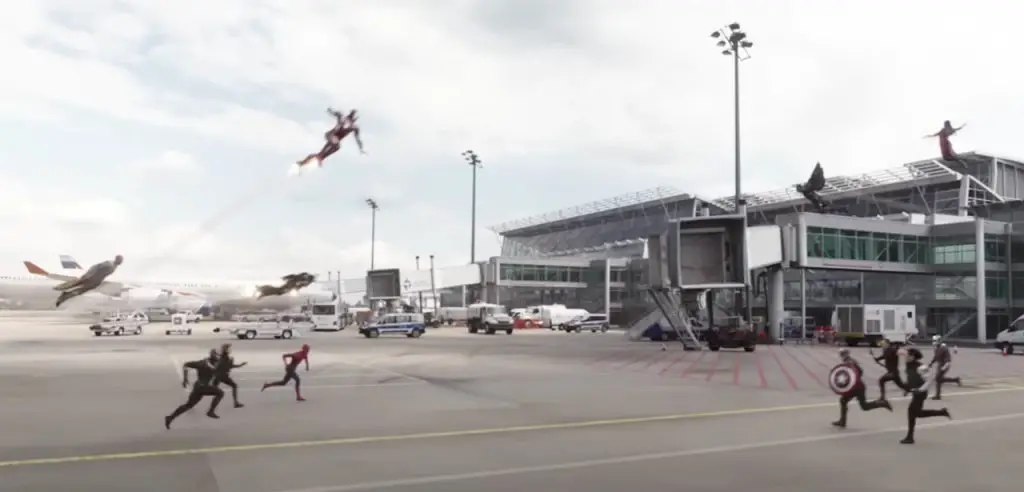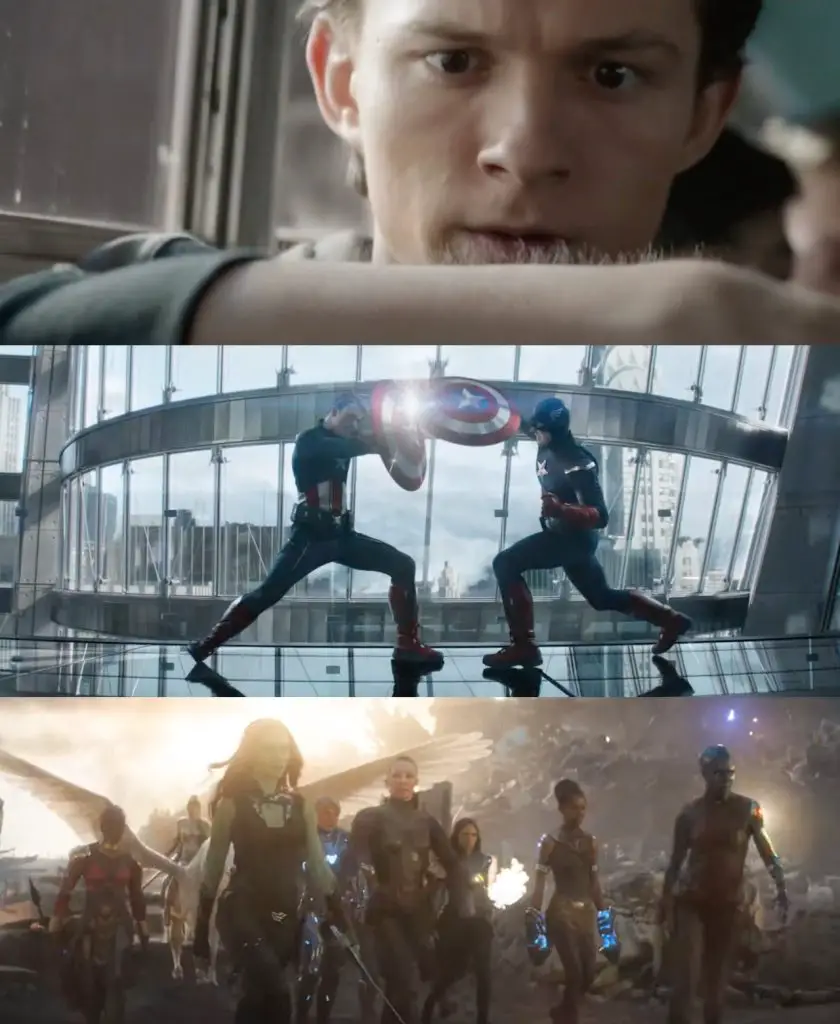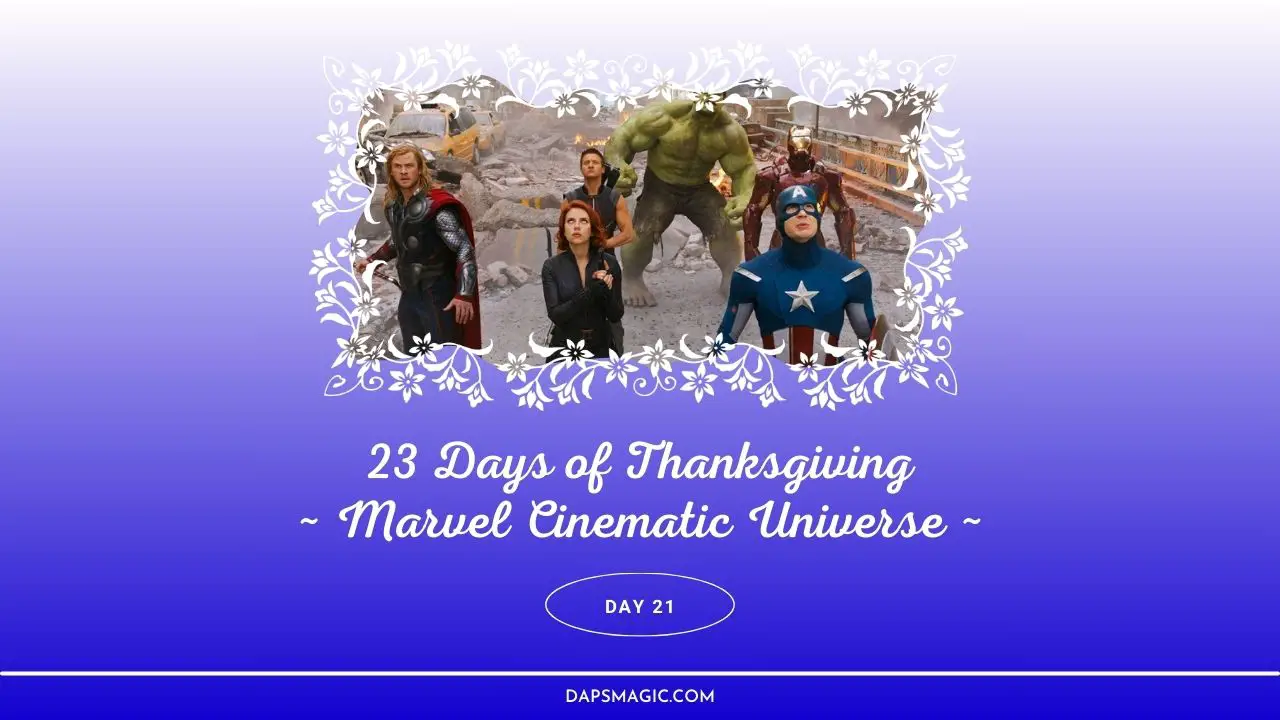When Disney acquired Marvel Studios in 2009, the nascent production company had produced just two movies in what they had dubbed the Marvel Cinematic Universe. Iron Man and The Incredible Hulk had both appeared in 2008. Iron Man was well received; the Hulk, not so much. After the acquisition, it would be another year before the next film would appear. This was 2010’s Iron Man 2, a big hit for Disney and the MCU. And since that release, neither has looked back, wracking up an additional 29 movies in the 13 years that have followed.

As if that wasn’t enough, the MCU also counts 20 television programs in its official canon, released either on network or through streaming services, from Agents of SHIELD (2013) to Secret Invasion (2023). Some of these influenced plot lines in subsequent film releases, or were direct outgrowths of cinematic predecessors. Taken together, just since that 2009 acquisition, there are 49 individual properties that comprise the MCU, to date.
Why am I thankful for this? Mostly because I have been able to keep track of it all. I have been able to follow the twists and turns of this sprawling universe, and without an encyclopedic knowledge of Marvel’s rich heritage as a producer of comic books and related media. Simply put, unlike many films and film franchises I have tried to follow, the MCU has never left me feeling like I am too old and too out-of-touch.
A prime case in point is Captain America: Civil War. Watching trailers for this one, I found myself wondering how they would ever keep track of so many characters, ostensibly working toward a common goal, while enmeshed in a plot that found them drawing up sides. This film’s great set piece battle, staged at the evacuated Leipzig-Halle airport, was nothing short of masterful. In addition to the MCU’s biggest marquee heroes, Iron Man and Captain America, there were relative newcomers like Black Panther and Ant-Man, as well as the surprise appearance of Spider-Man, making his MCU debut. In total, 12 characters faced off, allied behind either Captain America (Falcon, Winter Soldier, Hawkeye, Scarlet Witch, Ant-Man) or Iron Man (War Machine, Black Widow, Vision, Black Panther, Spider-Man).

I was fully prepared to be confused and ultimately frustrated with a chaotic fight scene populated by interchangeable characters. Instead, I found myself watching a skillfully choreographed sequence that ranged from larger-than-life mayhem to deeply personal moments derived from the background and personalities of each individual involved. It was exhilarating on every level.
And it is not just in big sequences that the MCU delivers. There are moments that, for me, represent not just great Marvel films, but great films in general: a closeup of the hair on Peter Parker’s arm standing on end as he rides a school bus across the Queensboro Bridge; the moment when Captain America realizes he will have to fight— and defeat— himself in Avengers: Endgame; or a gallery of Marvel’s female superheroes surrounding a momentarily stunned Spider-Man as Captain Marvel queries, “Hey Peter Parker. You got something for me?”

No, I do not believe that the MCU is saving the world. I have no interest in debating the relative merits of film classics, art-house masterpieces, and frankly commercial blockbusters. Each of these can deliver what I seek when I buy that movie ticket at the box office. Or rather, through that app on my phone. I know I will be getting a couple of hours immersed in a world where well written scripts, engaging characters, and stunning effects are combined for me and my enjoyment. And for that, I am thankful.

